|
|
|
Книги издательства «Oxford University Press»
|
In Sweden, nobody wants a troll to come into their garden, but how do you stop them? On a lonely road at night in Oman, Abdul's car breaks down and he takes a ride with a stranger, but perhaps it is safer to walk. In England some young people play a scary game, and in Asia, a soldier returns home — at last. Every country in the world has stories about ghosts and spirits and monsters of one kind or another. Some people believe in ghosts, and some don't — but everyone enjoys a good ghost story. |
|
A woman finds a man on a beach. He is very cold, his clothes are wet, and he cannot speak. The woman phones for help, and an ambulance comes and takes the man to hospital. In hospital they ask the man questions, but he does not answer. He still cannot speak — or does not want to speak. Who is he, this strange man from the sea? What is his name? Where did he come from? And why do they call him the Piano Man? |
|
Cedric Errol is seven years old. He lives with his mother in a little house in New York. They don't have much money, but mother and son are good friends. Cedric is a kind, friendly little boy, and everybody likes him. His farther was English, but he is now dead, and Cedric and his mother are alone in the world. But one day a lawyer arrives from England with some very surprising news about Cedrics's grandfarther... |
|
I'm afraid to look in the storeroom. All our food for the winter — where is it now? Inside those hungry guests! They never stop eating! And they never say thank you! And those children — my God, they eat more than their parents! Izzet Efendi and his family are afraid that their guests are never going to go home, but what can they do? Bookworms World Stories collect stories from around the world. This volume has stories by Turkish writers Huseyin Rahmi Gurpinar, Ayse Kilimci, Sait Faik, and Yalvac Ural. |
|
Luke is a good-looking young man, but he's not very clever with words. Gemma is clever with words, but what does she want? Lucy and Becky are good friends, but what about Sam? He makes wonderful cakes, but does he make mistakes too? Nina and Dragan are in love, so deeply in love, but they live in the wrong place, at the wrong time... All love stories have moments of happiness, pain, misunderstanding, laughter, and sometimes great sadness. But love will nearly always find a way... |
|
France, 1815. Jean Valjean leaves prison after nineteen years. These are dangerous and troubled times, and life is hard. Valjean must begin a new life, but how can he escape his past, and his enemy, Inspector Javert? This story for Bookworms is loosely based on the famous novel Les Miserables by Victor Hugo, one of France's greatest writers. The novel was written in 1862, and the story has been retold many times — in a musical, in plays for radio and theatre, and in more than fifty films for television and cinema. |
|
Who will speak for the poor? Who will listen to slaves, and those who have no rights? Who will work for a future where everyone is equal? Who will give up his house, job and money to fight for people who are shut out by everyone else? I will, said Mohandas Gandhi. And he began to fight in a way the world had not seen before — not with weapons, and wild crowds, and words of hate, but with the power of non-violence. This is the story of a man who became the Father of the Nation in his own country of India, and a great leader for the whole world. |
|
It is beautiful to look at, hard to reach, and terribly difficult to climb. Winds of 200 kilometres per hour or more scream across it day and night, while the temperature falls to-20 degreeC or lower. Every year, some who try to climb the highest mountain in the world do not return. But for a century people have been coming to climb Everest — some alone, some in groups, but all with a dream of going to the highest place in the world. This is their story. |
|
Right now, all over the world, people are using energy. As we drive our cars, work on our computers, or even cook food on a wood fire, we probably do not stop to think about where the energy comes from. But when the gas is gone and there is no more coal — what then? Scientists are finding new answers all the time. Get ready for the children whose running feet make the energy to bring water to their village; for the power station that uses warm and cold water to make energy; for the car that saves energy by growing like a plant... |
|
From the smallest fly to the biggest elephant, and from fish living at the bottom of the ocean to birds that fly several kilometres above land: this is the animal kingdom, the biggest group of living things in the world. Some are very different, others are the same in many ways — but these mammals, birds, fish, reptiles, amphibians, and invertebrates have all managed to live for thousands and thousands of years. How do they find food, grow, keep safe, and have young DS and what is the future for them in this fast-changing world? |
|
For a child in the great city of Venice in the thirteenth century, there could be nothing better than the stories of sailors. There were stories of strange animals, wonderful cities, sweet spices, and terrible wild deserts where a traveller could die. One young boy listened, waited, and dreamed. Perhaps one day his father and uncle would return. Perhaps he too could travel with them to great markets in faraway places. For young Marco Polo, later the greatest traveller of his time, a dangerous, exciting world was waiting... |
|
What are the most beautiful, the most interesting, the most wonderful things in the world? The Great Pyramid, the Great Wall of China, the Panama Canal — everyone has their favourites. And there are natural wonders too — Mount Everest, Niagara Falls, and the Northern Lights, for example. Here is one person's choice of eleven wonders. Some of them are made by people, and others are natural. Everyone knows the Grand Canyon and the Great Barrier Reef — but what about the Iguazu Falls, or the old city of Petra? Come and discover new wonders... |
|
What does the world look like from the moon? How do our bodies work? Is it possible for people to fly? Can I make a horse of bronze that is 8 metres tall? How can we have cleaner cities? All his life, Leonardo da Vinci asked questions. We know him as a great artist, but he was one of the great thinkers of all time, and even today, doctors and scientists are still learning from his ideas. Meet the man who made a robot lion, wrote backwards, and tried to win a war by moving a river... |
|
On a quiet sea, the biggest ship in the world is waiting. There is no noise from the engines. Up in the night sky there are hundereds of stars. Behind the ship, and iceburg, a great mountain of ice — goes slowly away into the black night. In the beautiful first-class rooms, rich passengers eat and listen to music. Down in the third-class cabins, families sleep. An exciting new life is waiting for them in America. But for many of the people in this small city of the sea, this is their last night alive... |
|
You can drink it, and you can cook with it. You can even make buildings, dresses, and hats out of it. You can give it to somebody as a present, or you can buy it for yourself. And of course you can eat it. Dark chocolate, milk chocolate, white chocolate, chocolates with gold on the outside — everybody loves chocolate. Follow its story, from the forests of Central America hundreds of years ago, through Africa, Europe, and the United States, to the growing markets of India and China. Perhaps you need a little something to eat while you read... |
|
It's a good place for gold, said people in the 1840s, and they came from all over the world. It's a good place for a prison, said the US government in the 1920s, and they put Al Capone there on the island of Alcatraz. It's a good place for love, said the hippies in the 1960s, and they put flowers in their hair and came to Haight Ashbury. And San Francisco is still a good place — to take a hundred photographs, or see the Chinatown parade, or just to sit in a coffee shop and be in this interesting, different city... |
|
More than 20 million visitors come to Scotland each year. Some love it for its long white beaches and quiet green hills. Some like the busy cities, with their shops and museums, castles and parks. Others come to see the home of their parents and grandparents, to hear Scottish music, to find their family tartan. And some come to visit the whiskey distilleries, eat wonderful food, and go to one of the world's biggest street parties. Scotland has something for everybody. Come and find what Scotland has for you. |
|
This book explores the relationship between research, teaching, and tasks, and seeks to clarify the issues raised by recent work in this field. The book shows how research and task-based teaching can mutually inform each other and illuminate the areas of task-based course design, methodology, and assessment. The author brings an accessible style and broad scope to an area of contemporary importance to both SLA and language pedagogy. |
|
A groundbreaking reconsideration of translation in English language teaching, this book is a survey and critical assessment of arguments for and against translation in different teaching contexts. This book proposes translation as one of a number of ways of relating English to students own languages. It surveys the contexts of monolingual and bilingual teaching and discusses the different uses and roles of translation and bilingualisation for different stages and ages of learning and for different purposes, e.g. explanation, practice, and testing. Establishing a new direction in practice and research, it goes on to suggest and discuss ways in which translation might be incorporated into materials, curriculum development, and teacher education. The book presents translation as: An aid to language acquisition, pedagogy, and testing. A contribution to student needs, rights, and empowerment. An educational insight into relationships between languages and cultures. |
|
This book is about the worlds and conflicts of TESOL teachers and researchers, whose professional lives are both enriched and problematized by the cultural and political interfaces created by working with an international language. Central to this discussion is the balance of power in classroom and curriculum settings, the relationship between language, culture, and discourse, and the change in the ownership of English. |
|